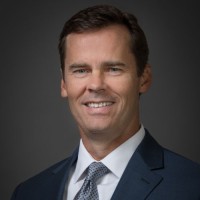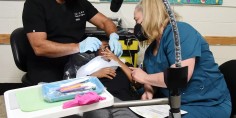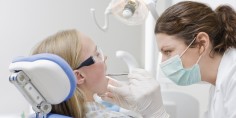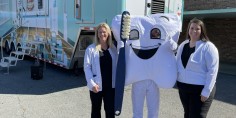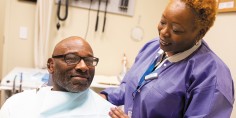Barbara Drake knows the important role oral health plays in a person’s overall health. That’s why her son Louis’ challenges in getting adequate dental care troubled her so deeply.
Few private dental practitioners will treat autistic patients and accept Medicaid, so she had to drive Louis from their Charleston home to a provider two hours away, in Lexington, S.C. She says he received little meaningful care there beyond the pulling of his wisdom teeth, a procedure for which he was put to sleep. She says the staff simply couldn’t overcome the 25-year-old’s antipathy toward having dental instruments placed in his mouth.
She and Louis have had a much different experience at the Special Health Care Needs Clinic run by the Medical University of South Carolina’s James B. Edwards College of Dental Medicine. Here, Louis gets regular treatment by dentists and dental students trained to understand the needs and preferences of special-needs patients. Barbara says the dentists and their students took time to listen to her insights about Louis and worked to gain Louis’ trust. Now he allows them to count his teeth, take X‑rays, and perform other vital services when he visits once every six months or so.
“It’s been a true blessing to go to MUSC so close to home,” Barbara says. “They really listen. They adapt to his needs. They just really seem to know how to deal with him. It’s a lot less nerve-wracking for me.”
A two-pronged solution
Far too many other South Carolina families face similar struggles. That’s why MUSC has partnered with The Duke Endowment and Family Connections South Carolina to establish the Special Health Care Needs Clinic at MUSC and Project SANDs (Special Adult Network of Dentists).
Project SANDs aims to increase access to dental care for all patients with special needs in South Carolina. It treats patients at MUSC’s clinic, but also identifies oral health care providers for them closer to home. The patients receive concierge care in locating a provider and follow-up with patient navigator services to ensure quality care was provided.

